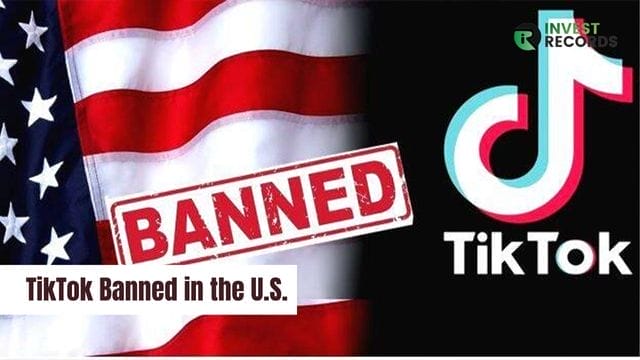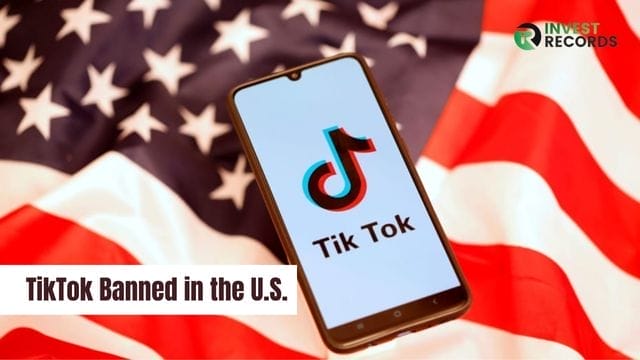Is TikTok Banned in the U.S.? Governments are concerned that TikTok, which is owned by the Chinese company ByteDance, may compromise sensitive user information.
In recent months, legislators in the United States, Europe, and Canada have intensified their efforts to restrict access to TikTok, a massively popular short-form video app owned by the Chinese company ByteDance.
Monday, the White House gave federal agencies 30 days to remove the app from government devices. Canada and the European Union’s executive arm have recently banned the app from official devices.
Wednesday, a House committee voted to move forward with legislation that would allow President Biden to ban TikTok from all devices in the United States.
Here’s why pressure has been ratcheted up on TikTok, which claims more than 100 million Americans use its platform:
Why is TikTok Banned by Governments?
Western legislators and regulators are increasingly concerned that TikTok and its parent company, ByteDance, may provide sensitive user data, such as location data, to the Chinese government.
They cited laws that permit the Chinese government to secretly demand data from Chinese businesses and citizens for intelligence-gathering operations.
They are also concerned that China may use the content recommendations on TikTok to spread disinformation.
TikTok has denied these allegations for a long time and has attempted to distance itself from ByteDance.
Is TikTok Banned in the U.S.?
The Biden administration has given all federal employees 30 days to remove TikTok from all federal devices and systems, citing data security concerns.
The White House directive followed the December congressional ban on the app’s use on all federal government devices.
Despite repeated assurances from TikTok executives that the company would not do so, U.S. Deputy Attorney General Lisa Monaco stated that the ruling Communist Party requires Chinese companies to provide access to their data.

While the ban only applies to government-owned devices, some U.S. lawmakers advocate for a complete ban on the app.
China lashed out at the United States over the ban on government devices, characterizing it as an abuse of state power and a suppression of foreign companies.
Additionally, more than half of U.S. states have banned TikTok from government-owned devices.
Read More
- Why is Google Classroom Not Working?
- How to Fix GPay Scanner Not Working Problem?
- After a Streamer Scammed People Out of $200,000, Twitch Banned Gambling Sites.
Other Countries That Also Banned TikTok!
India
Due to privacy and security concerns, India banned TikTok and dozens of other Chinese apps, including the messaging app WeChat, in 2020.
The ban was implemented shortly after a clash between Indian and Chinese troops at a disputed Himalayan border resulted in the deaths of twenty Indian soldiers and the injury of dozens more.
As reported by CBS News Arshad Zargar at the time, it was the first deadly border clash between the Asian superpowers in decades, but tensions had been building for months.
This year, India is projected to surpass China as the world’s most populous country due to its expanding middle class.
The companies had the opportunity to respond to questions regarding privacy and security requirements for the apps at the time, but the ban became permanent in January 2021.
Pakistan
Since October 2020, Pakistani authorities have temporarily banned TikTok at least four times, citing concerns that the application promotes immoral content.
Afghanistan
Afghanistan’s Taliban rulers banned TikTok and the Chinese game PUBG in 2022 on the grounds of protecting young people from “being misled,” but the country, like its neighbor Pakistan, made no mention of security concerns.
Taiwan
Taiwan imposed a ban on TikTok in the public sector in December 2022, after the FBI warned that the app posed a threat to national security.
Government devices, such as mobile phones, tablets, and desktop computers, are prohibited from using Chinese-made software, which includes apps such as TikTok, its Chinese equivalent Douyin, and Xiaohongshu, which is a Chinese lifestyle content app.

Taiwan is a small, democratically governed island that functions independently despite being only 180 kilometers (110 miles) from China across the Taiwan Strait. Beijing asserts Taiwan as its own territory and has vowed to exert forceful control over the island if necessary.
President Biden told “60 Minutes” late last year that Taiwan makes its “own judgments” regarding its independence and that the U.S. is not “encouraging” Taiwan’s independence. However, if China were to launch an “unprecedented attack” on the island, he would use American military power to help defend Taiwan.
European Community
The European Parliament, European Commission, and EU Council, three of the most powerful EU institutions, have banned TikTok on staff devices.
The ban announced by the European Parliament on Tuesday goes into effect on March 20. It has advised lawmakers and staff to delete the application from their personal devices.
As CBS News Emmet Lyons reported, European regulators may have more potent legal tools at their disposal to challenge the company than some of their international counterparts.
European lawmakers have also expressed growing concern about the app’s data policies and its influence on young people.
For instance, expansive EU data protection laws, which are more stringent than anything on the books in the U.S., could pose increasing difficulties for TikTok executives on the continent.
The app is already the subject of two investigations by Ireland’s data protection regulator regarding alleged transfers of user data to China that may violate the country’s laws and potential violations of the privacy of children.
If the company is found to be in violation of the EU’s new Digital Services Act, it could be subject to a direct audit and fines of up to 6% of the platform’s annual revenue.
Canada
Canada announced on Monday that government-issued devices are prohibited from using TikTok, citing the app’s “unacceptable” risk to privacy and security.
In the future, employees will no longer be able to download the application.



Comments are closed.